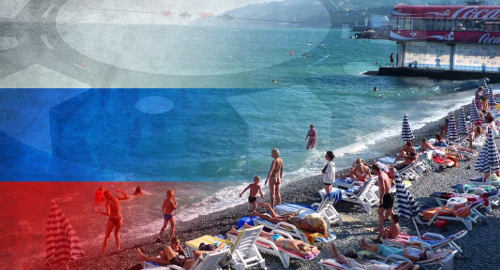 Russia has finally approved a new casino zone for its annexed Crimean territory, although its future success seems anything but assured.
Russia has finally approved a new casino zone for its annexed Crimean territory, although its future success seems anything but assured.
Last week, Russian Prime Minister Dmitry Medvedev signed legislation formally approving the creation of a new ‘Golden Coast’ gaming zone in Crimea. The zone, which the government expects will open its first casino by 2022, will be located near a small village called Katsiveli in the Yalta region on the Black Sea.
Plans for a Crimean gaming zone have been in the works for over five years, first surfacing shortly after Russian military forces forcibly seized the territory from Ukraine. Sergei Aksyonov, the current Russian administrator of Crimea, announced last week that a ‘large’ casino operator would soon be confirming its Crimean project aspirations.
Western nations imposed financial sanctions on Russia following the 2014 invasion of Crimea, and the European Union recently extended its ban on member states making any investments in Crimea for another year. The United States said in September that sanctions would remain in place so long as Russia continues to occupy the Crimea.
So the only firms likely to propose building a Crimean casino will either be Russian or from some other nation with friendlier relations with Russia, such as China or Cambodia. NagaCorp, a Cambodian operator, is currently preparing the 2020 launch of its Naga Vladivostok casino in Russia’s far east Primorye gaming zone.
Russia banned most forms of gambling in 2009, restricting casino operations to four geographically isolated designated gaming zones. In 2014, Russia added Crimea and Sochi to this category, although the Primorye zone is so far the only zone to attract the interest of non-Russian operators.
A lack of surrounding infrastructure has plagued many of these gaming zones, and the Crimea zone appears likely to suffer similar issues. The closest airport is a military facility around 70km from the casino site, although the government apparently plans to create a civilian terminal at this airport.
Crimea also hosts some Russian-operated sports betting shops and two operators were recently fined RUB1.5m (US$23,500) for accepting wagers from customers without conducting the necessary identification checks, shortcuts they allegedly took “in pursuit of profit.”